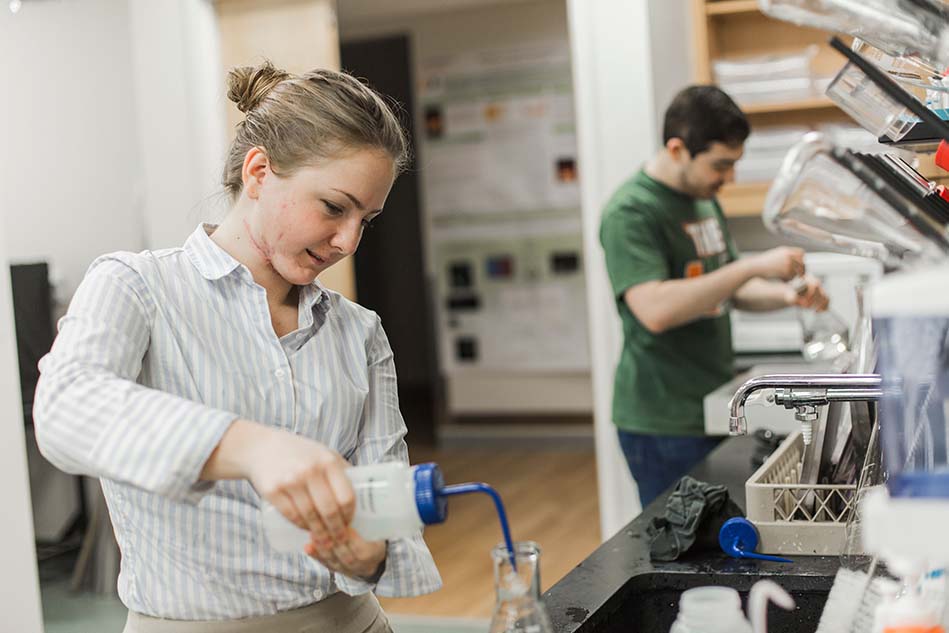When undergrads seek out campus buzz, they’re not usually looking for fruit flies. But some Arts and Sciences students are opting out of more typical extracurricular activities to help conduct lab research on these diminutive members of the drosophila species.
“I was interested in seeing what research was like because I was considering pursuing a Ph.D. in physics,” says Joseph Shomar, a senior majoring in math and physics. A typical shift for Shomar in the lab of Mason Klein, an assistant professor specializing in biological physics, involves putting fruit flies to sleep in order to examine them with specialized, high-tech equipment.
Using microscopy and other computer technology, Klein’s lab looks at how different organisms, such as the fruit fly, respond to stimuli in their environment and the resulting processes triggered in their brains.
First introduced to Klein’s work with fruit fly larvae during one of his classes, Shomar has now worked in the lab for more than two years.
“By being part of a lab, you learn a surprising amount that you otherwise would not have learned,” Shomar says. “In physics, this is particularly true. Labs do a great job of exposing students to the experimental side of the subject, as well as helping to identify interests in specific subfields.”
Shomar never dreamed of coauthoring a significant piece of scientific research so early in his academic career, as well as the networking opportunities that come with such an achievement. He credits the experience with helping him decide to indeed pursue a doctorate in physics—and helping him zero in on which aspect of the discipline he wishes to pursue in graduate school.
Shomar’s lab mate Meghan Dehne, a biochemistry junior, is equally enthusiastic. Peering into a microscope in a tiny corner of Klein’s lab, she recalls jumping on the opportunity to work on his research project as a way to work with other science intellectuals and to boost her academic and profession status through new ways of learning.
“Working in an undergraduate job in a University laboratory is a really unique experience,” Dehne says. “It's not like either class or an off-campus job. It teaches you workplace skills, but it also teaches you what doing science is really like.”
Building Buzz

